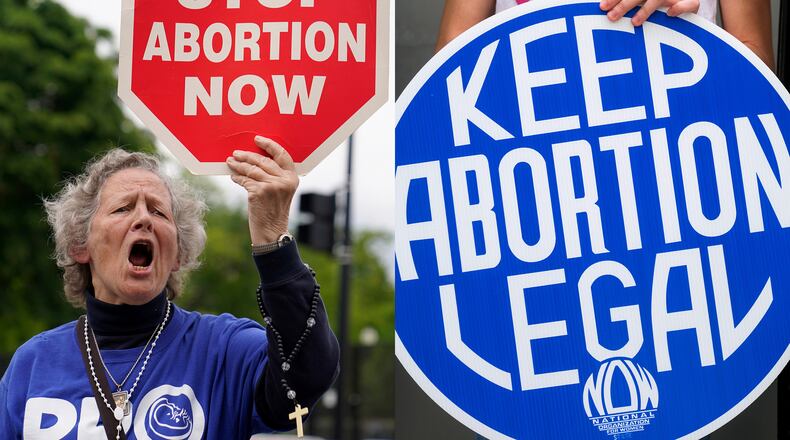Justice Samuel Alito, in the final opinion issued Friday, wrote that Roe and Planned Parenthood v. Casey, the 1992 decision that reaffirmed the right to abortion, were wrong the day they were decided and must be overturned.
“We hold that Roe and Casey must be overruled,” he wrote. “The Constitution makes no reference to abortion, and no such right is implicitly protected by any constitutional provision, including the one on which the defenders of Roe and Casey now chiefly rely—the Due Process Clause of the Fourteenth Amendment.”
Joining Alito were Justices Clarence Thomas, Neil Gorsuch, Brett Kavanaugh and Amy Coney Barrett. The latter three justices are Trump appointees. Thomas first voted to overrule Roe 30 years ago.
Chief Justice John Roberts would have stopped short of ending the abortion right, noting that he would have upheld the Mississippi law at the heart of the case, a ban on abortion after 15 weeks, and said no more.
Justices Stephen Breyer, Sonia Sotomayor and Elena Kagan — the diminished liberal wing of the court — were in dissent.
In their dissent, the justices wrote the court previously “struck a balance.”
“It held that the State could prohibit abortions after fetal viability, so long as the ban contained exceptions to safeguard a woman’s life or health,” they wrote. “...Today, the Court discards that balance. It says that from the very moment of fertilization, a woman has no rights to speak of. A State can force her to bring a pregnancy to term, even at the steepest personal and familial costs.”
A draft opinion leaked on May 2 suggested Roe v. Wade would be overturned. Justice Samuel Alito signed the majority opinion, which said it’s time “to return the issue of abortion to the people’s elected representatives,” according to a Politico report.
The opinion was labeled a “1st Draft” in Dobbs v. Jackson Women’s Health Organization, a Mississippi case that challenged an abortion ban after 15 weeks.
In his draft, Alito dismissed the arguments in favor of retaining the two decisions, including that multiple generations of American women have partly relied on the right to abortion to gain economic and political power.
The leak resulted in a wave of rallies across the country and locally.
Whatever the intentions of the person who leaked Alito’s draft opinion, the conservatives held firm in overturning Roe and Casey.
The decision came against a backdrop of public opinion surveys that find a majority of Americans oppose overturning Roe and handing the question of whether to permit abortion entirely to the states. Polls conducted by The Associated Press-NORC Center for Public Affairs Research and others also have consistently shown about 1 in 10 Americans want abortion to be illegal in all cases. A majority are in favor of abortion being legal in all or most circumstances, but polls indicate many also support restrictions especially later in pregnancy.
The Biden administration and other defenders of abortion rights have warned that a decision overturning Roe also would threaten other high court decisions in favor of gay rights and even potentially, contraception.
Justice Clarence Thomas, the member of the court most open to jettisoning prior decisions, wrote a separate opinion in which he explicitly called on his colleagues to put the Supreme Court’s same-sex marriage, gay sex and even contraception cases on the table.
But Alito contended that his analysis addresses abortion only. “Nothing in this opinion should be understood to cast doubt on precedents that do not concern abortion,” he wrote.
